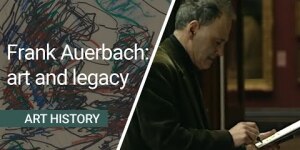S otheby’s is proud to present Age of Wonder, an auction spanning categories to highlight the most significant figures of the modern age. By the dawn of the 19th century, new understandings of astronomy and geology were becoming a part of popular discourse. Despite this, science itself had yet to produce its own theory of creation. Through On the Origin of Species (1859), however, Charles Darwin had written what is now considered a new Book of Genesis. Liberated by science, man’s reach was suddenly boundless.
As the citizens of the 19th century came to accept the findings of their Romantic forebearers, culture soon caught up. With Mary Shelley’s Frankenstein animated by electricity, Dickens’ Little Dorrit offering an exploration of climate change within London, and photography able to capture with immediacy the essence of existence, society was obsessed with the possibility of science, as well as the wonder it inspired.


In this sale we are thrilled to offer the most significant autograph manuscript by Charles Darwin to appear on the market, which serves as his definitive statement on evolution, Newton, and religion.
Age of Wonder: John van Wyhe on an Autograph Manuscript Leaf by Charles Darwin
An Introduction by Professor John van Wyhe, National University of Singapore, and founder and Director of Darwin Online
Hermann Kindt (1835-1889) was a German journalist and French teacher living in England who edited the bilingual journal The Autographic Mirror (L'Autographe Cosmopolite), which published facsimiles of the handwriting of famous people and biographical entries. This was part of the growing popularity of collecting autographs. Kindt began writing to Darwin in 1864 requesting autographs and a photograph. (Photographs of Darwin are fully detailed only in the iconography by John van Wyhe in Darwin: A Companion, 2021.)
On 17 October 1865 Kindt wrote to Darwin with a further request: "I have forwarded to you a journal, which I beg you will not take the trouble of returning, for which I should be happy to have a page in your handwriting for a facsimile reproduction. In case you will kindly comply with my wish, will you please to extract a longer passage from your 'Origin of Species', written on a piece of paper in the size of a page of our publication and signed with your esteemed name. As the journal also appears on the Continent, your numerous friends there would be much pleased to see your handwriting thus reproduced. You will also oblige me by looking over the enclosed biographical notice intended for a similar purpose and by altering dates and such passages as you cannot approve of" (Correspondence vol. 13, p. 271).
Two folio volumes of The Autographic Mirror were published from 20 February 1864 when the format was enlarged to quarto in July 1865. Darwin chose a powerful passage from the conclusion of Origin, but one that was not in the first edition. Instead, he copied from the third and most recent edition of 1861, p. 514: "It is no valid objection that science as yet throws no light on the far higher problem of the essence or origin of life. Who can explain what is the essence of the attraction of gravity? No one now objects to following out the results consequent on this unknown element of attraction; notwithstanding that Leibnitz formerly accused Newton of introducing 'occult qualities and miracles into philosophy.'"
The introduction of these lines to Origin can be traced back to a sentence in David Brewster's Memoirs of the life, writings, and discoveries of Sir Isaac Newton (1855 vol. 2, p. 282): "Leibnitz...accuses Newton of introducing occult qualities and miracles into philosophy [i.e. gravity]". Darwin recorded reading this on 23 February 1860 in his 'Books Read / Books to be Read' notebook (CUL-DAR128). On the same day, Darwin wrote to Charles Lyell: "With respect to Bronn's objection that it cannot be shown how life arises, & likewise to certain extent Asa Gray's remark that natural selection is not a vera causa,—I was much interested by finding accidentally in Brewster's life of Newton, that Leibnitz objected to the law of gravity, because Newton could not show what gravity itself is. As it has chanced I have used in letters this very same argument, little knowing that anyone had really thus objected to Law of Gravity.— Newton answers by saying that it is philosophy to make out the movements of a clock, though you do not know why the weight descends to ground.— Leibnitz further objected that the Law of Gravity was opposed to natural Religion!— Is this not curious? I really think I shall use these facts for some introductory remarks for my bigger book" (Correspondence vol. 8, p. 102. First published in Life and letters vol. 2, p. 289).
The "bigger book" (usually called the 'big book' today) was never published. Instead, Darwin inserted the lines in the "Supplement" to the 4th American printing of On the Origin of Species (p. 431) in 1860. It also appeared the same year in the first German translation (by Bonn, p. 484). From the 3d English edition (1861) onwards, the new passage formed part of the conclusion of Origin. Thus, we can understand why Darwin chose this particular passage to copy out for Hermann Kindt in 1865.
Kindt replied to Darwin on 23 October: "Many warm thanks for your so kindly complying with my request as well as for the corrections of, and additions to, my biographical sketch, which latter I will correct accordingly" (Correspondence vol. 13, p. 282). This enclosure was published as Darwin to Kindt [18-22 Oct. 1865] in the Correspondence as letter 4918F. The original manuscript is reproduced here with a transcription.
The number "245." in the upper right corner of the manuscript is not in Darwin's hand and is not present in the 1865 facsimile. Similarly, the "p 514 3d Edit of 'Origin'" at the bottom left is in another hand, that of Darwin's daughter Henrietta Emma Litchfield. It is present in the 1865 facsimile. The manuscript was later in the collection of Jacob J. Podell.
Kindt's biographical entry edited by Darwin is also in Darwin Online: The Autographic Mirror (11 Nov. 1865; Text PDF F3448). In the entry, as usual, Darwin chose to indicate that he was a county magistrate. See the only book dedicated to this almost totally unknown chapter in Darwin's life: John van Wyhe & Christine Chua, Charles Darwin: Justice of the peace. The complete records (1857-1882), 2021.
Read Less

Other lots include a fine first edition of Darwin’s On the Origin of Species; the scarce and highly desirable Darwin and Wallace paper “On the tendency of species to form varieties, and on the perpetuation of varieties and species by natural means of selection” (issued by The Journal of the Proceedings of the Linnean Society in 1858), in which Darwin first published the outline of his theories of natural selection and evolution; a first American edition of Melville’s masterpiece, Moby-Dick, and numerous other lots sure to inspire wonder.
Online bidding will be open the 25th of November through the 9th of December. A pre-sale exhibition will be on view at Sotheby’s New York the 30th of November through the 8th of December.
















